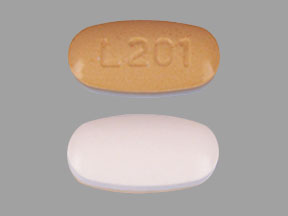
Micardis Hct Coupons & Savings Card – Discount Prices from $22.03
Brand for: Telmisartan-hydrochlorothiazide
My prescription
Edit
80-25MG, Telmisartan-hydrochlorothiazide (30 Tablets)
Select pharmacy

CVS
$22.03
COUPON PRICE
Walgreens
$22.77
COUPON PRICE
Walmart
$23.47
COUPON PRICE
Albertsons
$26.12
COUPON PRICEMicardis Hct savings card
Show this card to your pharmacist
CVS
$22.03
BIN
ID
PCN
GRP
019876
LH1EE0D647
CHIPPO
LHX
Powered by
More prescriptions for hypertension
More prescriptions for hypertension
Price history for Micardis Hct (brand) & Telmisartan-hydrochlorothiazide (generic)
30 Tablets, 80-25MG
Average retail price for Micardis Hct
Average retail price for Telmisartan-hydrochlorothiazide
Average SaveHealth price for Telmisartan-hydrochlorothiazide
Our price history data is based on aggregated prescription data collected from participating pharmacies in America. Our prescription data updates daily to reflect the latest price changes. If you notice a missing data point, it means there wasn't sufficient data available to generate a monetary value for that date.
Over the last 12 months, the average discount price of Micardis Hct is $25.71 using the SaveHealth savings card. That's an average savings of 86.29% on Micardis Hct with our discount card.
*Retail prices are based on pharmacy claims data, and may not be accurate when we don't have enough claims.
Micardis Hct (Telmisartan-hydrochlorothiazide) dosage forms
Dosage Quantity Price from Per unit 40-12.5MG 5 Tablets $5.66 $1.13 40-12.5MG 30 Tablets $21.49 $0.72 40-12.5MG 60 Tablets $24.77 $0.41 40-12.5MG 90 Tablets $36.00 $0.40 40-12.5MG 180 Tablets $45.70 $0.25 80-25MG 30 Tablets $22.03 $0.73 80-25MG 15 Tablets $12.98 $0.86 80-25MG 45 Tablets $23.89 $0.53 80-25MG 60 Tablets $25.76 $0.43 80-25MG 90 Tablets $37.49 $0.42
| Dosage | Quantity | Price from | Per unit |
|---|---|---|---|
| 40-12.5MG | 5 Tablets | $5.66 | $1.13 |
| 40-12.5MG | 30 Tablets | $21.49 | $0.72 |
| 40-12.5MG | 60 Tablets | $24.77 | $0.41 |
| 40-12.5MG | 90 Tablets | $36.00 | $0.40 |
| 40-12.5MG | 180 Tablets | $45.70 | $0.25 |
| 80-25MG | 30 Tablets | $22.03 | $0.73 |
| 80-25MG | 15 Tablets | $12.98 | $0.86 |
| 80-25MG | 45 Tablets | $23.89 | $0.53 |
| 80-25MG | 60 Tablets | $25.76 | $0.43 |
| 80-25MG | 90 Tablets | $37.49 | $0.42 |
| 80-12.5MG | 15 Tablets | $11.81 | $0.79 |
| 80-12.5MG | 30 Tablets | $21.12 | $0.70 |
| 80-12.5MG | 60 Tablets | $24.77 | $0.41 |
| 80-12.5MG | 90 Tablets | $36.00 | $0.40 |
| 80-12.5MG | 180 Tablets | $45.70 | $0.25 |
What is Micardis HCT used for?
Micardis HCT is used to treat high blood pressure (hypertension). It combines two medications, telmisartan and hydrochlorothiazide, to help lower blood pressure and reduce the risk of cardiovascular events such as strokes and heart attacks.
What are the side effects of telmisartan and hydrochlorothiazide tablets?
Telmisartan and hydrochlorothiazide tablets may cause several side effects. Common side effects include dizziness, lightheadedness, or dehydration due to increased urination. Some individuals may experience fatigue, muscle cramps, or gastrointestinal issues such as nausea or diarrhea. Less common but more serious side effects can include signs of kidney problems, electrolyte imbalances, or allergic reactions such as rash, itching, or swelling. It is important for individuals to contact their healthcare provider if they experience any severe or persistent side effects.
Why is telmisartan given with hydrochlorothiazide?
Telmisartan is often given with hydrochlorothiazide because they work together to effectively lower blood pressure. Telmisartan is an angiotensin II receptor blocker (ARB) that helps relax blood vessels, while hydrochlorothiazide is a diuretic that helps reduce fluid retention. The combination enhances the antihypertensive effect, providing better blood pressure control than either medication alone.
How much does Micardis HCT cost?
The cost of Micardis HCT can vary depending on factors such as the pharmacy, location, dosage, and whether the patient has insurance coverage. Without insurance, the price can range from approximately $100 to $300 for a 30-day supply. Patients are advised to check with their local pharmacy for the most accurate pricing and to inquire about any available discounts or generic alternatives.
Does telmisartan hctz cause weight gain?
Telmisartan HCTZ is not commonly associated with weight gain. In fact, hydrochlorothiazide, a component of the medication, is a diuretic that may lead to weight loss due to fluid reduction. However, individual reactions to medications can vary, and if there are concerns about weight changes, it is advisable to consult a healthcare provider.
